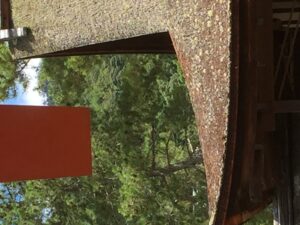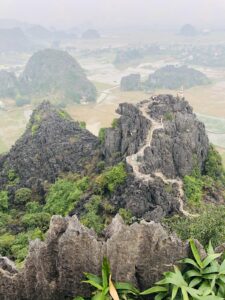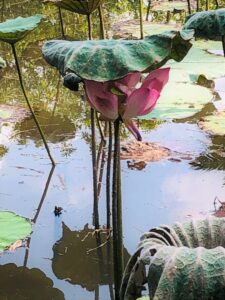“Karuna is not just intelligent intellectual or philosophical insight, it is wise compassion arising from visceral embodied, non-conceptual/non-verbal presence and seeing”
 Dear Integral Meditators,
Dear Integral Meditators,
This weeks article explores ‘karuna’ or compassion arising from wisdom. It is a subject we will explore in this Tuesday and Wednesday evenings meditation session, you’d be welcome, live-in-person, or online..
In the spirit of karuna,
Toby
Karuna – Compassion arising from wisdom
Ordinary compassion
Ordinary compassion is something that we all possess. It happens when we observe the suffering of others with any degree of empathy. It leads us to sympathize, to wish them to be free of their pain, and if possible, do something to help. This kind of compassion is to a greater or lesser degree present in humans, and also to a more limited degree animals.
This kind of compassion is the source of many good things, and also a source of pain; with so much suffering in the world, and so few resources, when is the pain ever going to end?! When my brother and sister-in-law were doing NGO work in Afghanistan and Kazakhstan, they used to have to have a compulsory once every seven-week holiday, so that they didn’t get psychologically overwhelmed by the scale of the suffering they saw worked with.
This compassion can also cause us to withdraw from the world, to feel despair, to cut off from others in order to stop feeling the pain of seeing pain!
Karuna
Karuna is defined as ‘compassion arising from wisdom’. It’s a particular type of spontaneous compassion that arises from the discipline of being present mindfully, which then leads to a particular way of seeing and insight into ourself and the world, as-they-are.
With karuna, our compassion arises spontaneously, intuitively, and without sentimentality. If there is something that can be done in the moment, then we do it. If nothing can be done, the same karuna arises, but it does not give rise to inner conflict or despair. We simply do what we can, with what we have in the moment, and then let go.
Karuna arises from something called ‘working samadhi’, which is essentially the ability to keep focused and present in your daily life in the same way that you are able to in a formal sitting meditation. From this we can also see that a pre-requisite for karuna is the ability to focus the mind in formal meditation; if you can’t do it in sitting meditation, you won’t be able to do it in daily life. The wisdom that gives rise to karuna is not just intelligent intellectual or philosophical insight, it is wise compassion arising from visceral embodied, non-conceptual/non-verbal presence and seeing.
I’ve talked about compassionate presence this in my precious article (see link at the bottom. All I’m going to do to finish this entry off is to leave a quote by John Daido Loori on karuna, which is as beautiful and pithy an explanation of it as I have found. Keep meditating!
“Working samadhi…begins to manifest in activity now. We’re able to stay with what we are doing and not disconnect from the moment by chasing thoughts, pre-occupied with something other than the activity at hand, wishing we weren’t there. This single-mindedness on any and all facets of life is working samadhi….It’s our aliveness and presence, moment to moment. Each instant is lucid and complete.
Within that working samadhi, karuna – real compassion – begins to appear. Compassion is wisdom in action. It is not merely doing good. At the beginning of our practice, many of us experience an overwhelming, bleeding-heart impetus to save the world, mixed with equally overwhelming despair that there are just too many problems and too few resources. As practice matures, our awkward attempts or pessimistic withdrawals are replaced by genuine compassion arising from practice and realization. We see what we can do and we do it. We do it without even reflecting, or knowing why we’re doing it. Compassion happens. It happens the way we grow our hair. It is that simple and that mysterious.”
Quote, John Daido Loori – Chapter 5, ‘Path of Enlightenment – Stages in a Spiritual Journey
Related article: Compassionate presence, awakened action
Article & content © Toby Ouvry 2022, you are welcome to use or share this article, but please cite Toby as the source and include reference to his website www.tobyouvry.com

Tues & Weds March 22nd & 23rd – Spring Equinox balancing & renewing meditation
The Spring Equinox in the northern hemisphere marks the mid-point between the cooler, darker seasons of the year and the lighter, warmer ones. The forces of day and night, light and dark are of equal strength. As such it represents time to emphasize balance and harmony, both in our life and meditation practice.
It is also good time to attune the life-force in the earth and creative energies within ourselves. We will be taking the time to get in touch with the new ideas, energies and creativity within ourselves as they emerge like new plants and flowers in spring.

Saturday March 19th, 9.30-11.30am – Monthly Qi Gong & Taoist Breathwork Clinic & Mini-retreat
In a sentence: Experience unique Qi gong and Taoist breathing techniques to improve your immune system, energy level, psychological wellness and enhance your meditation…read full details
 Starts Tuesday 5th/Wednesday 6th April 2022 – The Way of the Mindful Warrior – Meditating with the Warriors creed
Starts Tuesday 5th/Wednesday 6th April 2022 – The Way of the Mindful Warrior – Meditating with the Warriors creed
In a sentence: Establish the inner strength, skill and courage needed to make you resilient in the face of life’s challenges, and thrive in both times of adversity and times of peace.
Overview: The Warriors Creed is a poem by an unknown Samurai in the 14th century. It outlines a code of conduct and a state of presence based around a series of inner qualities that can be cultivated through mindful contemplation, then applied to our daily life…read full details
Are you looking a coach who can help you to:
- Meet the challenges, stress and changes that you face in a more effective and mindful way
- Become happier within yourself, in your relationships and at work
- Be actively accountable for finding a sense of balance/well-being in your life and fulfilling your personal potential?
- Guide you to find and operate from a deeper sense of meaning, motivation and connectivity in your life?
All upcoming classes and workshops at IMA:
Ongoing – Weekly Tuesday, Wednesday Online class schedule
Ongoing on Wednesday’s, 7.30-8.30pm – Wednesday Meditation for stress transformation and positive energy with Toby (Bukit Timah)
Ongoing on Tuesday evenings, 7.30-8.30pm – Tuesday Meditation for stress transformation and positive energy with Toby (East Coast)
Ongoing January-March – Zen: The ordinary path to enlightenment – Meditating with the Ten Ox Herding pictures
Saturday March 19th, 9.30-11.30am – Monthly Qi Gong & Taoist Breathwork Clinic & Mini-retreat
Tues & Weds March 22nd & 23rd – Spring Equinox balancing & renewing meditation
Starts Tuesday 5th/Wednesday 6th April 2022 – The Way of the Mindful Warrior – Meditating with the Warriors creed
Tues 17th/Weds 18th May: Wesak meditation
Integral Meditation Asia
Online Courses * 1:1 Coaching * Books * Live Workshops * Corporate Mindfulness Training *Life-Coaching * Meditation Technology

 Dear Integral Meditators,
Dear Integral Meditators,



 Dear Integral Meditators,
Dear Integral Meditators,



